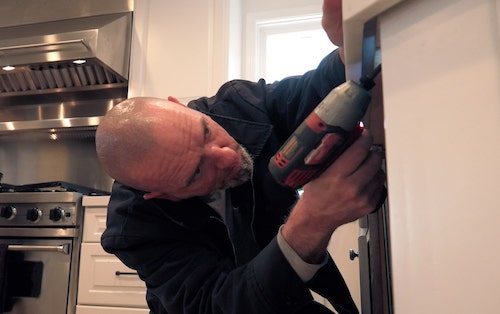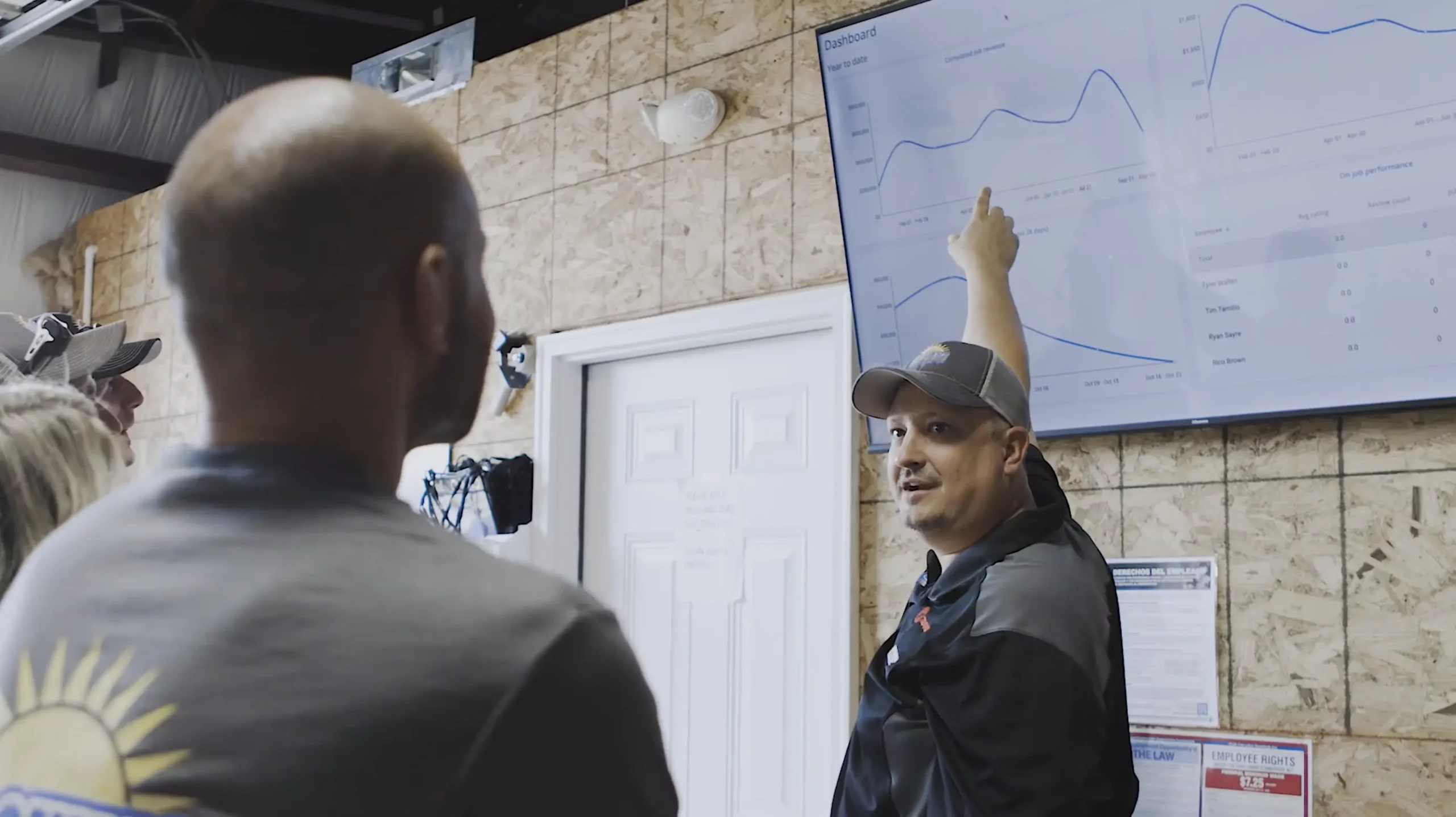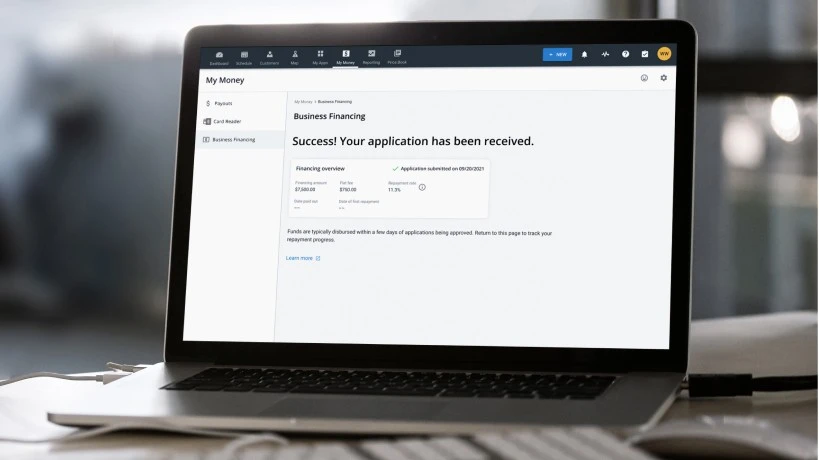
Liability Waivers Are Your Paper Trails of Protection
You stand behind your services, as any good provider would. But now your customer is saying their bathroom sink is leaking because of the new pipe you installed in the kitchen. Huh?
We probably don’t have to tell you these types of stories are not uncommon. Some folks think that the work you do on one side of the house could affect a totally different system on another floor. And some homeowners just want someone to blame for their repair woes.
No matter the motivation, when a customer complains that your work created an unrelated issue, you could be in for a headache if you’re not prepared. That’s where liability waivers come in. Your customers should understand exactly which work you’re guaranteeing and what you’re not. In other words: no, you won’t replace their car battery because it happened to die the day after you fixed their house’s fuse box.
Customer Horror Stories
Every home services employee has at least a few horror stories about customers who make strange claims. At Housecall Pro, our clients have heard it all. Do any of these situations sound familiar?
- You cleaned a tile floor for a customer. A few days later, they call and say the moisture from the tile cleaning cause a door to swell and now it won’t shut properly. The only problem is that door in question is on the other side of the house.
- You change an outlet for a customer on their home’s exterior. The customer blames you for their chipped windshield, even though their car was in the garage the entire time (which you never entered).
- You go into an attic to wire for a ceiling fan, and the customer now says you’re responsible for every nail pop in their ceiling.
- You clean a customer’s gutters. Now the sunroof in his car won’t open, and that’s somehow your fault.
If these scenarios sound wild, count yourself lucky! They’re all real situations our Housecall Pros have found themselves in. If you can’t tell by now, a clear outline of your work scope and how it might affect the home (and how it definitely won’t) is very important.
What to Do With Strange Customer Complaints
Unhappy customers can result in a lot of unwanted problems. As far as legal issues go, you probably won’t be sued for breach of contract. If you’ve fulfilled the job as requested for the most part, it will likely be hard for your customer to prove a material breach.
However… unhappy customers can leave terrible reviews online and tell their neighbors not to hire you. Former customers could also cost you a lot of time and energy trying to rectify the situation. If they’re super overzealous they could even drag you to small claims court over a false allegation of damages. As you face customer complaints, think about these factors:
- Can you easily remedy the situation? OK, you know you didn’t break the customer’s door handle on the way out. But if a new $20 handle will fix the problem, it may be worth just paying up and moving on.
- Are you actually at fault? Before you deny that you caused the issue, ask everyone who was involved with the repair if there is any way it’s true. Likewise, ask your team if they observe anything relevant to the customer’s claim. Maybe your associate noticed the door handle broke on the way into the home and you can use his statements in your defense.
- Would you have been protected against this hassle with a different type of contract? If you have a liability waiver in place, you may be off the hook for most if not all of the strange claims that roll in.
Document, Document, Document
The best way to protect yourself against a questionable or flat-out false claim is by having proof of everything related to a job. A waiver is just one way to cover your behind. What else should you be documenting?
UpCounsel suggests getting a contract for ongoing services, but their tips are helpful for even one-time jobs. You may also want to take a page out of the home inspectors’ book for documenting property condition. Things to put in writing (as part of a signed agreement between you and your customer) include:
- Create a list of all the areas and facilities to be serviced.
- Explain the steps involved on paper (i.e. “The water will be shut off to the property and a 12×12 square of drywall will need to be removed).
- Write out an expected schedule, so both parties have an understanding of the anticipated time commitment.
- Note the areas of the house that you will need to access in order to complete the job properly.
- Photograph the state of the area/appliance/pipes you’re repairing both before and immediately after the project.
- Itemized anticipated costs.
This sounds like a lot of information, but templates help. For instance, if you routinely shut off the water to a home before any job, you can include it in your standard contract. Leave a few blank areas in the template so it can be quickly customized as needed for each job.
What is a Liability Waiver?
A liability waiver is a legal agreement between you and your customer. In short, this document releases you from responsibility for certain possible negative outcomes. You see these waivers a lot with risky activities — if you go ziplining on vacation, you probably have to sign something that says you won’t sue the company if you hit a tree branch on the way down.
When it comes to home services, a liability waiver does a few things. First, it can ask the customer to acknowledge that you’re not responsible for any repairs not immediately related to the work you do. In other words, if you are hired to fix a water heater and the water runs cold again 10 hours later, you’ll return to remedy the issue. If your water heater work mysteriously “caused a tile to break in the upstairs shower”… you won’t consider that your responsibility.
Second, a liability waiver could free you from responsibility when a customer tinkers with the repair after you leave. If you leave the garbage disposal in good working condition and they put too many meat scraps down it again the next day — that’s not your fault. A waiver can include wording that makes that clear.
How to Create a Custom Liability Waiver
The good news is that you don’t have to write a waiver from scratch. There’s nothing new under the sun, and you’re not the first home services provider to need a liability document related to repairs. This template from Rocket Lawyer may be a good place to start. You could also consult your own attorney if you have one. Finally, you may choose to bake a liability waiver clause into a general contract, as you can see in this PandaDoc template.
Here are some key takeaways from these template samples about what should be included in a standard liability waiver for home repairs:
- Be explicit about which, if any, future repairs you are willing to take responsibility for. You may want to say you are not “responsible or liable for any problems arising from the attempted repair.” Alternatively, you might write that you and the homeowner agree to “indemnify and hold one another harmless against any and all claims of loss or damage, save for cases of willful misconduct or gross negligence.”
- Clarify which repairs are covered by this waiver/contract. If you have repeat customers, a new waiver with customizable fields should be signed for each service visit. Added to a template, this may look like “Undersigned requests Anderson Plumbing to repair ____________.”
- Put in writing that a successful repair is not always possible (assuming that applies to your field). For instance, sometimes a water heater just can’t be fixed and needs to be replaced. You can promise to do your best to complete the pair completely and swiftly, but don’t give a 100% guarantee that you’ll always be able to get it done. You don’t want to be held liable for incomplete repairs for reasons beyond your control.
Remember to choose a template (provided you use the assistance of an online platform) that is specific to your state. You don’t want to use a template intended for New York businesses if you operate in Florida. There could be seemingly small but significant difference to how the template you use should be worded to comply with state laws.
Communicating with Customers
Customers should always sign their waiver before the work is completed. Think about it: if someone is unhappy with you at the conclusion of your repairs, why would they agree to release you of liability? When emotions are running hot, people aren’t always reasonable.
Customers may have questions about why they need to sign this waiver. Don’t you stand behind your work? It’s always worthwhile to explain that while you are confident about the quality of your work, sometimes unexpected things happen. At the end of the day, a good contract protects everyone. The customer enters into the project informed, and your business is released of liability where it ethically should be.
Always communicate in writing. Even if you have a verbal conversation, a signed contract is the superior record. In the event that the customer complains about a cracked windshield that supposedly resulted from your gutter repair — a liability clause will come in handy. Ask yourself: “If I had to prove that I’m not responsible for this customer complaint, could I?” Contracts, photos, and other documentation will help you make your case.
Some customers may refuse to pay if they’re really unhappy. As NOLO points out, you can still sue for payment even with an oral contract. However, you would have to track down witnesses and emails, etc. if you don’t have a contract. Make it easier on yourself with contracts and waivers!
Contracts are key to keeping your business running smoothly; so are online booking, easy invoicing, and service agreement help. At Housecall Pro, we offer home services businesses all that and more. Contact us today to learn more about streamlining your business!







